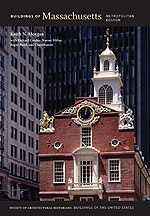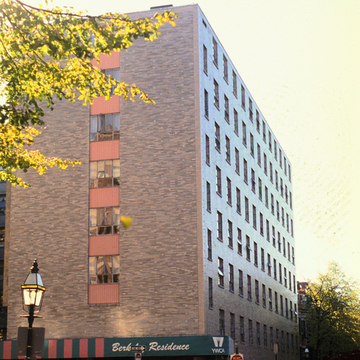Founded in 1866, the nation's first YWCA built its earliest permanent quarters here in 1884. George Meacham designed a brick six-story structure that accommodated 156 residents and provided the country's first YWCA gymnasium. The South End location was chosen to be near the Park Square railroad station, convenient for women arriving in Boston. With increased popularity, the facility expanded in 1907, adding 35 bedrooms in the surviving seven-story brick addition along Gray Street. When the original building was declared unsafe in 1950, fund-raising began for a modern residence. The replacement eight-story, L-shaped building, constructed of variegated gray brick with strong horizontal
You are here
YWCA Berkeley Residences
1907, Howard S. Chandler; 1954, Kilham, Hopkins, Greeley and Brodie. 40 Berkeley St.
If SAH Archipedia has been useful to you, please consider supporting it.
SAH Archipedia tells the story of the United States through its buildings, landscapes, and cities. This freely available resource empowers the public with authoritative knowledge that deepens their understanding and appreciation of the built environment. But the Society of Architectural Historians, which created SAH Archipedia with University of Virginia Press, needs your support to maintain the high-caliber research, writing, photography, cartography, editing, design, and programming that make SAH Archipedia a trusted online resource available to all who value the history of place, heritage tourism, and learning.















